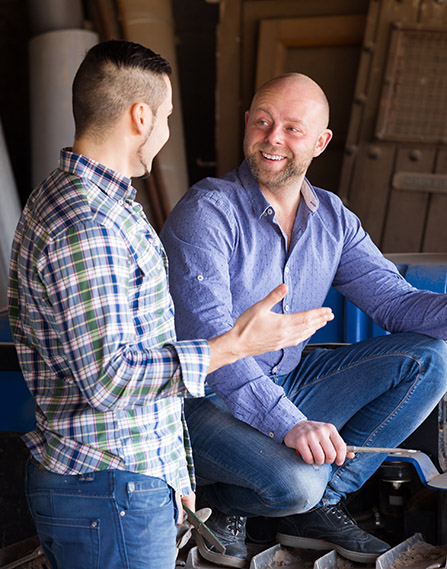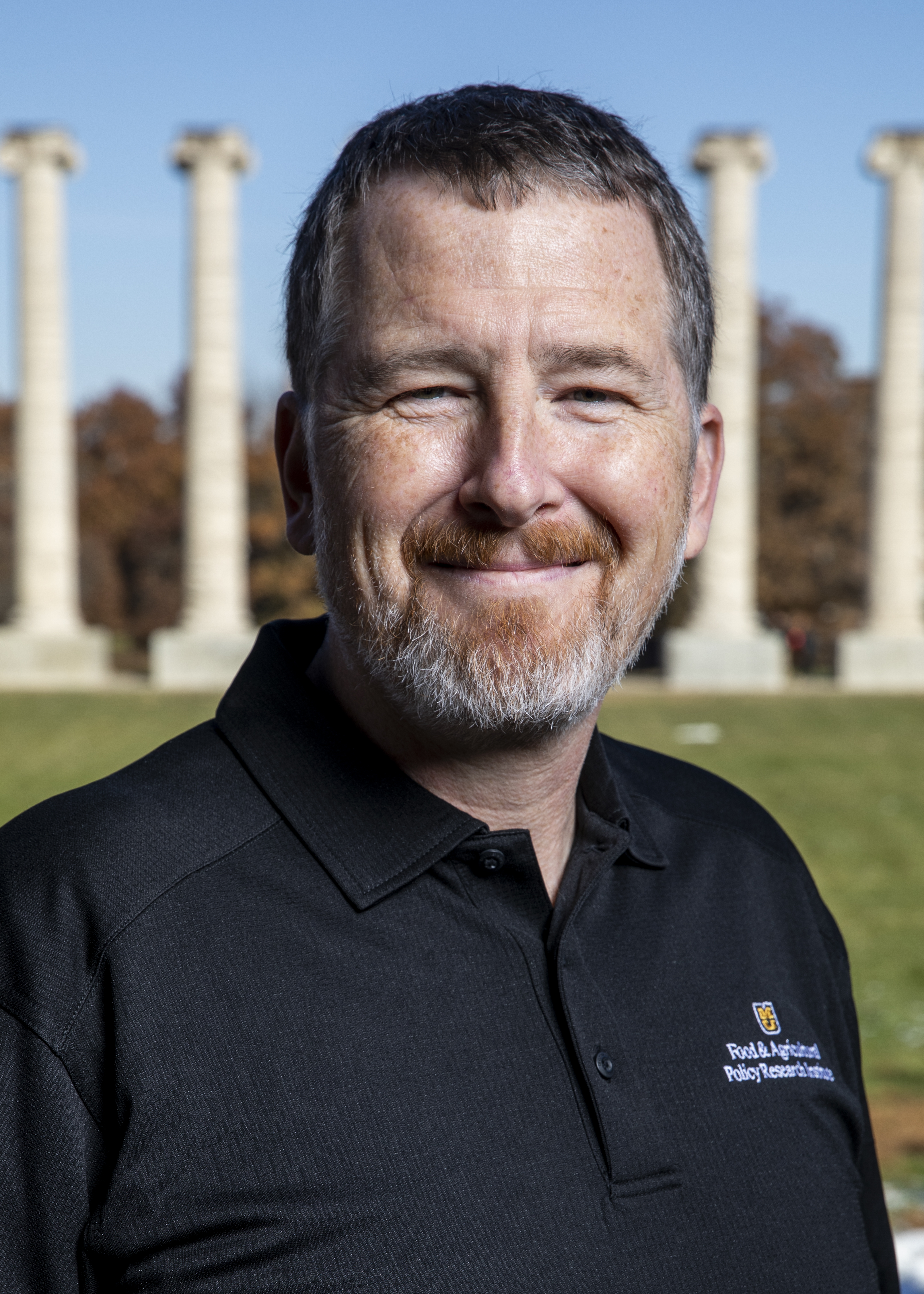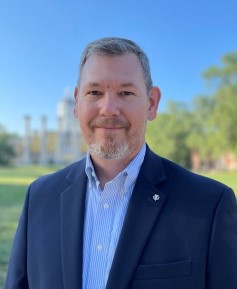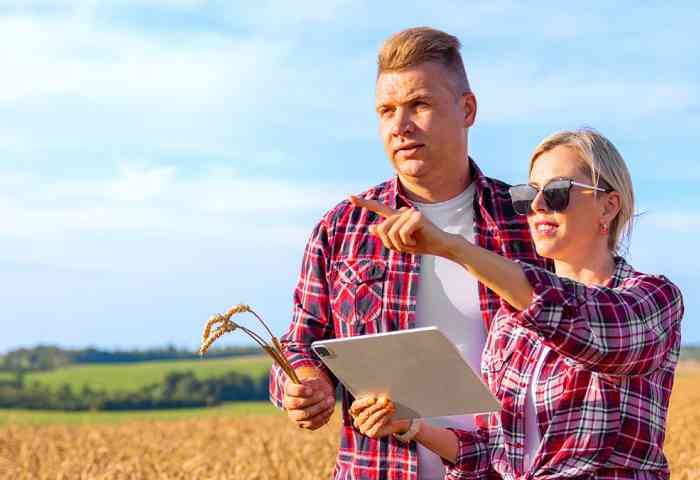Master of Science Ag Economics
The agricultural industry touches our lives no matter where we are. Rural farms are the bedrock of the industry. But agriculture takes many forms. The rooftop greenhouse in an urban center, a community garden that centers a neighborhood, and the research team testing new, drought-resistant crops are all vital parts of the agricultural industry. So are the experts weighing in on potential, industry-affecting policies and the agribusinesses providing new machinery or transporting goods from farm to grocer. From agribusiness to research to fieldwork, it takes talented people who understand those varied aspects of the industry to keep it running smoothly.
People like you.
Pursuing your Master of Science in Agricultural and Applied Economics from Mizzou will put you in good company. Mizzou’s College of Agriculture, Food and Natural Resources (CAFNR) is one of the most respected institutions in the industry. In keeping with Mizzou’s land grant mission, CAFNR’s purpose is to improve the lives of Missourians and those beyond. As a CAFNR student, you’ll benefit from access to world-class faculty who are industry leaders in agribusiness, agricultural economics and policymaking. CAFNR faculty provide stakeholders like the U.S. Congress, USDA, commodity groups and international governments with analysis of agricultural markets and policies. You will learn from some of the leading minds in the world on agricultural and agribusiness practices.
About the MS in Agricultural and Applied Economics
This program was developed by Mizzou’s Division of Applied Social Sciences. The online master’s in agricultural and applied economics places a strong emphasis on research and applied learning. You’ll develop skills and strategies to solve problems and provide expertise in several areas, including:
- Environmental and development economics.
- Managerial, behavioral and organizational economics.
- Public policy analysis.
These skills will make you invaluable to employers in agrifood business, government and international agriculture.
Quick facts
Official name
Master of Science in Agricultural and Applied EconomicsCampus
Program type
Master's degreeAcademic home
College of Agriculture, Food & Natural Resources | Division of Applied Social SciencesDelivery mode
100% onlineAccreditation
Higher Learning CommissionCredit hours
30Estimated cost
$19,020.00*This cost is for illustrative purposes only. Your hours and costs will differ, depending on your transfer hours, your course choices and your academic progress. See more about tuition and financial aid.

Career prospects
Graduates of the online MS in Agricultural and Applied Economics program could attain job titles like:
- Policy analyst
- Agricultural economist
- Farm manager
- Data analyst in agriculture
- Rural development advisor
- Research scientist
- Program coordinator for agricultural initiatives
Program structure
This fully online MS program requires a minimum of 30 credit hours to complete. This non-thesis option requires a project and additional coursework that will take the place of thesis research.
Course Work Includes
- Micro- and macroeconomics
- Applied statistics
- Agricultural and Applied Economics courses determined by specialization
Review all requirements for the online Master’s in Agricultural and Applied Economics program.
Delivery
100% onlineCalendar system
Semester-basedTypical program length
2 yearsTypical course load
3 courses per semesterAccreditation
The University of Missouri is accredited by the Higher Learning Commission, one of six regional institutional accreditors in the United States.
Faculty spotlight

Teo Skevas is an associate professor in the Division of Applied Social Sciences at the University of Missouri. His research investigates the drivers of decision making and resource allocation within agricultural firms and examines how they affect producers’ economic performance and the environment.

Wyatt Thompson is a professor of agricultural and applied economics. He joined the Food and Agricultural Policy Research Institute at the University of Missouri in 2006 to work on biofuel markets and policies, agricultural policies and trade. Before joining the team, he worked at the Organization for Economic Cooperation and Development in Paris, France, analyzing export competition policies, measuring agricultural policy support and assessing market impacts of policies, particularly those of the European Union, Mexico and the United States. He also worked on similar topics at the Policy Research Institute of the Ministry of Agriculture, Forestry and Fisheries in Tokyo, Japan, as a research fellow of the Japan Society for the Promotion of Science. During a sabbatical from MU, he spent a year at the Office of the Chief Economist of the U.S. Department of Agriculture.

Michael Sykuta is an economist and associate professor in the Division of Applied Social Sciences at the University of Missouri and serves as executive director of the Financial Research Institute. Dr. Sykuta’s research focuses on contracting practices, firm organization, organizational governance and the implications of regulation and government programs for firm and industry behavior.
